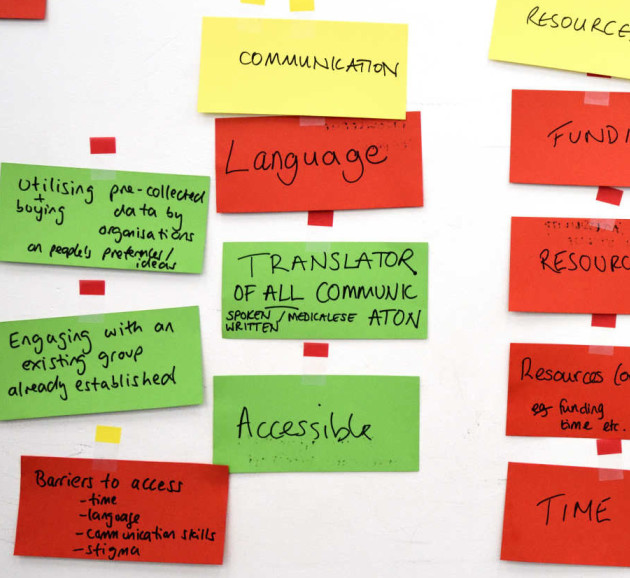Co-producing research
 'Co-producing a research project is an approach in which researchers, practitioners and the public work together, sharing power and responsibility throughout the life of a project; from start to finish' (NIHR, 2021).
'Co-producing a research project is an approach in which researchers, practitioners and the public work together, sharing power and responsibility throughout the life of a project; from start to finish' (NIHR, 2021).
Across funders and organisations, the term 'co-production' has varying defintions. The Patient Experience Research Centre uses the above definition taken from the NIHR's guidance for co-producing a research project published in 2021. In this guidance the NIHR set out five key principles of co-production, which distinguish 'co-production' from the usual 'consultation' or 'collaboration' activities of public involvement:
- Sharing of power – the research is jointly owned and people work together to achieve a joint understanding
- Including all perspectives and skills – the research team includes all those who can make a contribution
- Respecting and valuing the knowledge of all those working together on the research – everyone is of equal importance
- Reciprocity – everybody benefits from working together
- Building and maintaining relationships – an emphasis on relationships is key to sharing power. There needs to be joint understanding and consensus and clarity over roles and responsibilities. It is also important to value people and unlock their potential.
However, please note that each funder differs in their interpretation of co-production, so it's important to read any funding guidance which may indicate their definition of co-production. For instance the UKRI, talks about co-production in more general terms of public involvement throughout the research cycle.
Co-production guidance
Training and guidance for peer research
Peer Research Training Resource - Developed by the Patient Experience Research Centre, this resource, is aimed at academics and public involvement practitioners who want to train people with lived experience to become co-researchers in qualitative/interview-based research studies.
Research Methods: A Practical Guide to Peer and Community Research: Identify how to conduct your own research and develop your own ethical research project on this practical course (Futurelearn)
Why Experience Matters - Qualitative Research (Futurelearn) - Explore the methods and tools qualitative researchers use to understand human behaviour and solve social problems. Suitable for general public audience.
A research handbook for patient and public involvement researchers, produced by NIHR funded research programme, EQUIP
Guidance and articles on co-producing research
Co-production examples and case studies
For further co-production case studies and reflections go the PERC blog.


